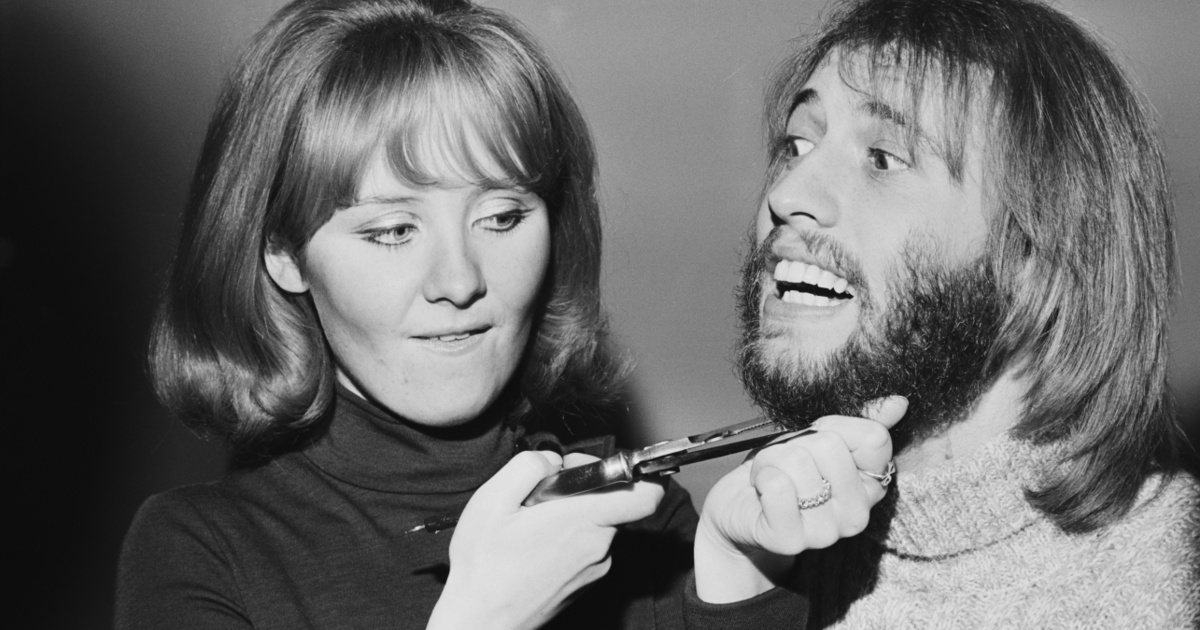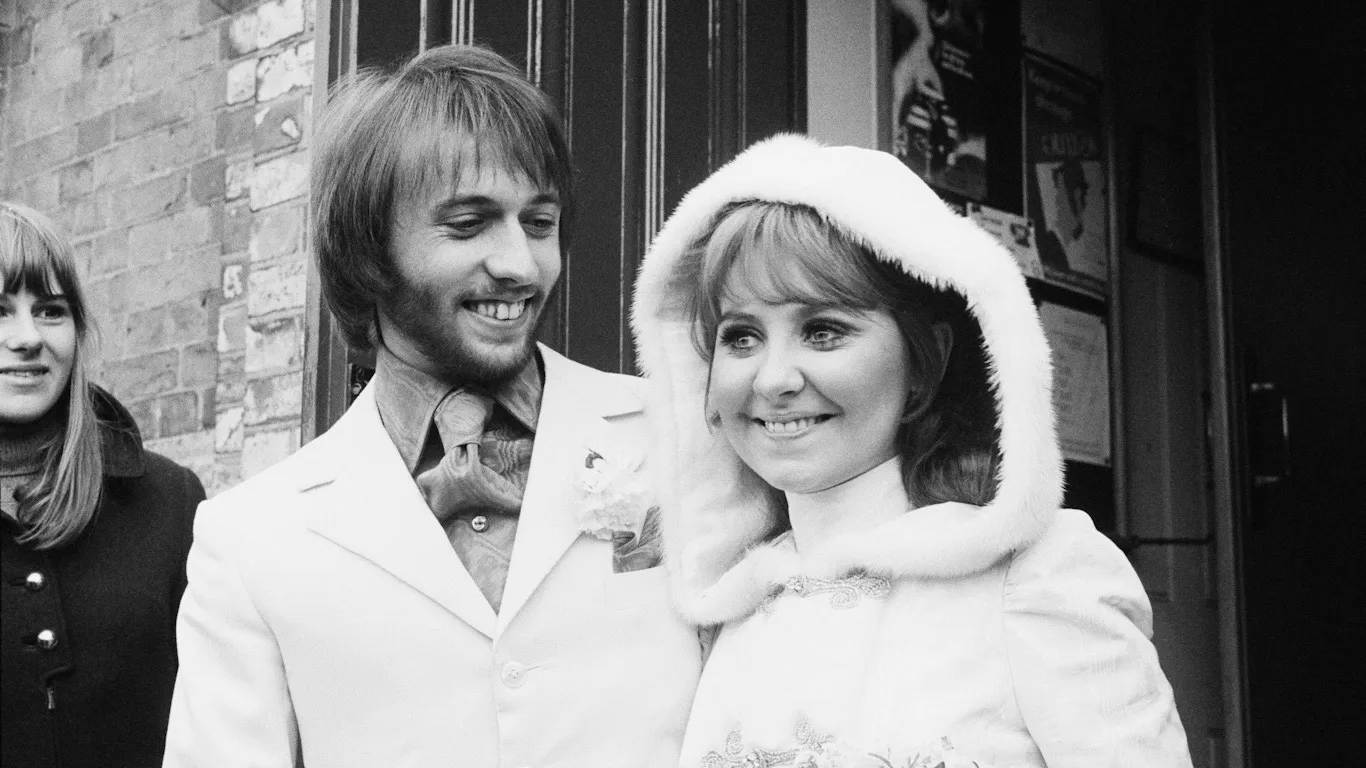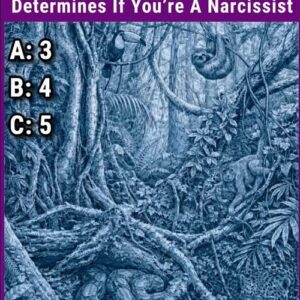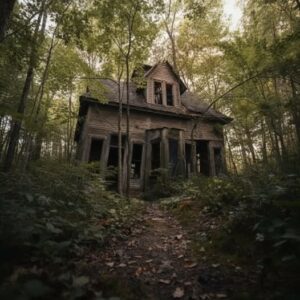
Introduction
A love once lost, reborn in one haunting duet.
They were young, wild, and beautifully broken.
When Maurice Gibb of the Bee Gees met Lulu, the 19-year-old Scottish pop starlet, sparks flew like a scene out of a Technicolor dream. Within months, they were married—two souls on fire, tangled between fame, passion, and chaos.
But what began as the ultimate showbiz fairytale soon spiraled into heartbreak.
“We thought we were the king and queen of the world,” Lulu would later confess to Piers Morgan in Life Stories. “It was amazing—but we should never have married. It should’ve just been a romance.”
🌹THE RUSH TO FOREVER
The year was 1969. The Bee Gees were climbing the global charts, and Lulu had just conquered Eurovision. To the tabloids, they were pop royalty—a golden couple of swinging London. But behind the champagne smiles, a darker truth simmered.
Maurice, the quiet genius behind his brothers’ harmonies, was struggling. His battle with alcohol—a silent shadow that followed him for years—began to poison their young marriage.
“It wasn’t the music, it wasn’t the fame,” Lulu recalled. “It was the drinking. Once that started, everything began to slip away.”
By 1973, the fairytale had collapsed. The following year, their divorce became official. The tabloids called it “the end of Britain’s golden pop marriage.”
Yet, despite everything—the headlines, the tears, the distance—something deeper endured.

🕯️A LOVE THAT NEVER FULLY DIED
Maurice never spoke ill of Lulu. Those who knew him said he still kept her photograph in his studio, tucked behind a mixing board. “He never stopped caring about her,” a close friend later told Classic Pop Magazine.
And Lulu, too, would carry his memory. On Life Stories, her voice trembled as she admitted:
“I ended it. He didn’t want it to end, and that broke him. I adored him. But was I in love with him? Maybe I was in love with being in love.”
It was an honesty that cut deep—proof that even decades later, the wounds of young love never truly fade.

🎤THE IMPOSSIBLE REUNION
No one expected them to ever share a stage again. Not after thirty years of separate lives, separate worlds, and the haunting silence of what might have been.
But in 2002, the unthinkable happened.
For her special TV event, An Audience With Lulu, the Scottish star planned to invite a handful of legends—Elton John, Ronan Keating, Enrique Iglesias. But one name on the guest list would change everything: Maurice Gibb.
When Mo walked into the studio that night, the air itself seemed to change. The audience gasped. Here he was—the Bee Gee with the gentle eyes, the one who’d lived through loss, recovery, and decades of musical triumph.
Maurice had been sober for years by then, determined to reclaim the peace that fame once stole. Friends say he looked lighter that night—almost serene. “It was like seeing a ghost step into the light,” one crew member recalled.
🌅THE SONG THAT BROUGHT THEM BACK
At first, Lulu wanted them to sing “Islands in the Stream,” the Bee Gees-penned hit that Dolly Parton and Kenny Rogers made immortal. But Maurice had another idea—a song that carried too much history to ignore.
He smiled softly and said, “Let’s do ‘First of May.’”
That song—written by Barry, Robin, and Maurice—had been the soundtrack to their brief marriage. They’d performed it together once on television in the early 1970s, young and radiant, unaware of the heartbreak that awaited them.
Now, three decades later, they stood side by side once again. The lights dimmed. The first piano notes rang out. And as Lulu’s voice met Maurice’s harmony, time itself seemed to freeze.
“It felt like closing a circle,” Lulu told BBC Radio 2 later. “We weren’t husband and wife anymore. But in that song, we were everything we ever were—and maybe everything we ever could’ve been.”
💫THE FINAL HARMONY
Viewers wept as they sang—two voices aged by time, bound by memories that no divorce could erase. The chemistry, the tenderness, the slight tremble in Maurice’s voice—all of it was heartbreak in motion.
For a brief, shimmering moment, it wasn’t about the Bee Gees or the pop charts. It was about two souls who had once loved each other too deeply, standing together again as if to say, “We made it through.”
Behind the cameras, friends whispered that Maurice looked happier than he had in years. “He told me afterward, ‘That felt right,’” one crew member remembered. “He said it was like saying goodbye properly.”
Only months later, tragedy struck. Maurice Gibb passed away suddenly in January 2003 at age 53. The duet with Lulu would become one of his final public performances—a haunting swan song to a love that had defied time, pain, and silence.
Lulu, heartbroken, paid tribute to him in tears:
“Maurice was my first love. You never forget your first love. He’ll always have a piece of my heart.”
🕊️AN ECHO THAT STILL LINGERS
Today, fans still revisit that An Audience With Lulu performance as if rewinding a dream. The grainy footage glows with an almost holy warmth—the soft lighting, the fragile laughter, the subtle glance between two people who had once shared everything.
Onstage, they were no longer the reckless lovers of 1969. They were survivors—of fame, of addiction, of heartbreak, of time itself. And for one song, they found their way back home.
As the last note of “First of May” faded, Maurice reached over, took Lulu’s hand, and whispered something the microphones didn’t catch. She smiled through her tears.
Whatever he said, it was enough.
Because in that fleeting moment, thirty years after their fall, Maurice Gibb and Lulu finally sang not as stars—but as human beings who had loved, lost, and lived to tell the story.
Key themes captured: nostalgia • second chances • lost love • redemption • timeless pop history







